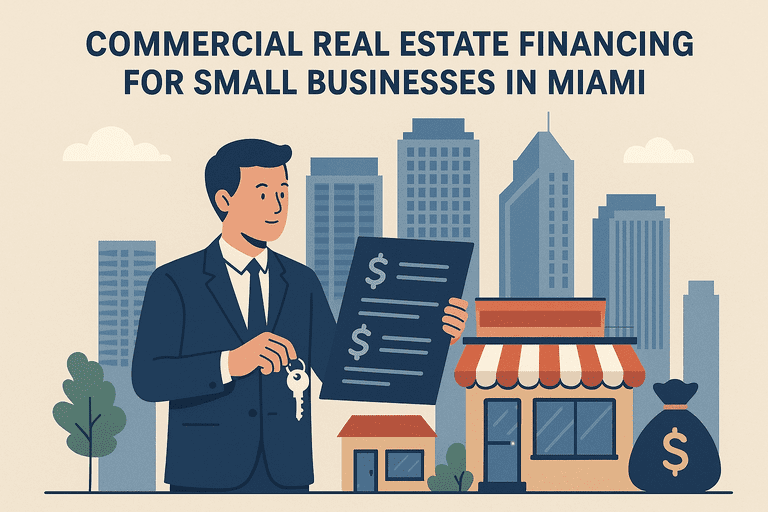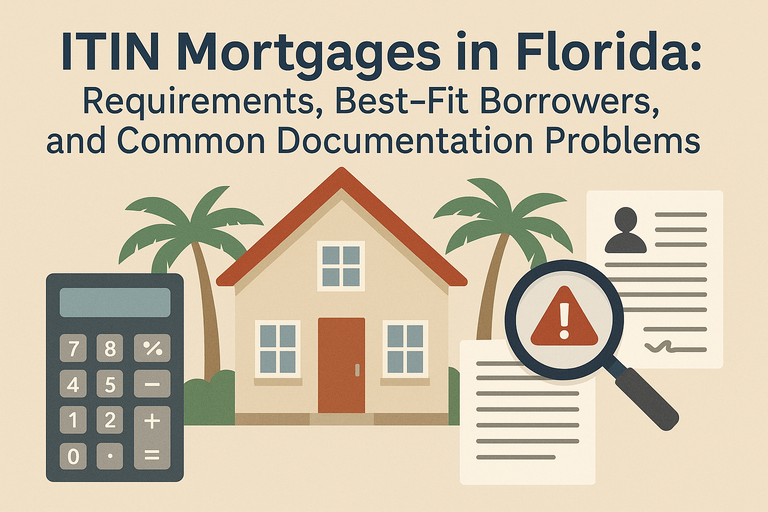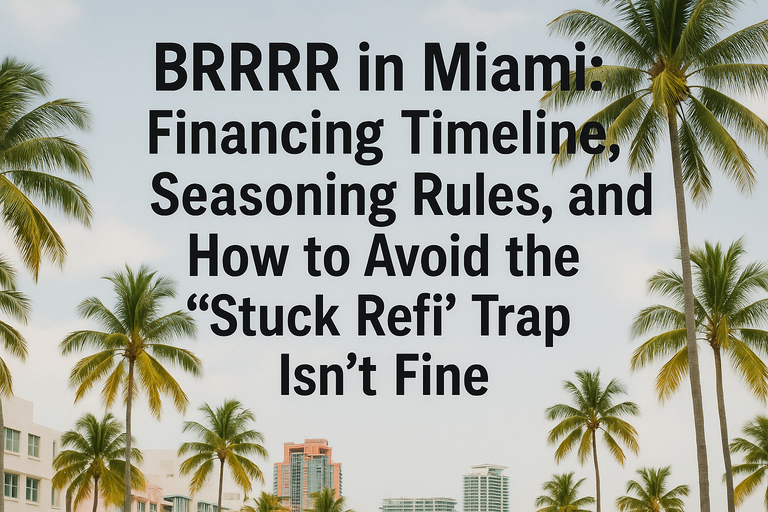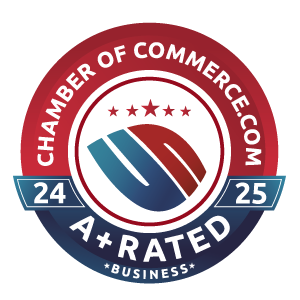For many entrepreneurs, commercial real estate financing for small businesses in Miami is the gateway to growth and long-term stability. Owning or leasing the right property can transform a small business, providing not just a physical space but also an appreciating asset. However, navigating financing options in a competitive and diverse market like Miami requires careful planning, an understanding of local lending trends, and a clear strategy.
In this guide, we’ll break down the benefits, risks, and financing strategies small business owners should know before pursuing commercial real estate in Miami.
Why Commercial Real Estate Financing Matters in Miami
Miami’s thriving economy, fueled by tourism, international trade, tech startups, and healthcare, makes it one of the hottest small business markets in the U.S. Securing the right commercial real estate financing ensures small businesses can:
-
Build equity in a property instead of paying rent.
-
Lock in predictable long-term costs.
-
Expand operations in high-demand areas.
-
Improve their business valuation and credibility with investors.
Transitioning from leasing to ownership can be a game-changer, but it requires smart financing.
Types of Commercial Real Estate Financing for Small Businesses
Understanding financing options is the first step. Miami entrepreneurs have several pathways:
1. Traditional Bank Loans
-
Typically require strong credit and established business history.
-
Offer competitive interest rates.
-
Work best for stable businesses with reliable revenue streams.
2. SBA 504 and 7(a) Loans
-
Government-backed loans designed to support small businesses.
-
Lower down payments (as little as 10%).
-
Longer repayment terms, often up to 25 years.
-
SBA 504 loans are especially popular in Miami for purchasing real estate.
3. Commercial Mortgages from Local Lenders
-
Miami-based mortgage brokers and banks often provide more flexibility.
-
Local lenders understand the dynamics of neighborhoods like Wynwood, Brickell, and Little Havana.
4. Bridge Loans
-
Short-term financing for businesses that need to act quickly.
-
Useful when waiting for permanent financing to be approved.
5. Private and Hard Money Lenders
-
Faster approvals, less paperwork.
-
Higher interest rates, often used for short-term investments or high-risk ventures.
Benefits of Commercial Real Estate Financing for Miami Small Businesses
-
Equity Growth – Instead of rent going to a landlord, payments build ownership.
-
Tax Advantages – Mortgage interest and property taxes are often deductible.
-
Control Over Property – Ability to renovate, expand, and customize space.
-
Appreciation in Miami’s Market – Commercial properties in areas like Downtown and Coral Gables continue to grow in value.
Risks and Challenges to Consider
While financing offers opportunities, small businesses should remain cautious:
-
High Down Payments – Traditional loans may require 20–30% upfront.
-
Interest Rate Fluctuations – Variable loans can increase long-term costs.
-
Property Management Costs – Ownership means maintenance, repairs, and insurance responsibilities.
-
Market Volatility – Miami’s real estate market is competitive; values can shift.
Transition words: However, therefore, nonetheless, and consequently — highlight that risk management is as important as growth planning.
How to Qualify for Commercial Real Estate Financing in Miami
Lenders look for:
-
A strong credit score (both business and personal).
-
Business financials: profit/loss statements, tax returns, balance sheets.
-
A clear business plan outlining how the property will support growth.
-
Collateral: the property itself often serves as security.
For small businesses, working with an experienced Miami mortgage broker can make the qualification process smoother and more accessible.
Practical Tips for Small Business Owners
-
Evaluate Your Cash Flow – Can your business comfortably cover monthly payments?
-
Shop Around – Compare multiple lenders, including local banks and SBA-backed programs.
-
Negotiate Loan Terms – Interest rates, repayment periods, and prepayment penalties all matter.
-
Work with Specialists – A Miami mortgage broker who specializes in commercial loans can guide you through paperwork and lender negotiations.
-
Plan for the Future – Consider whether the property meets your business needs for at least the next 10 years.
The Role of a Miami Mortgage Broker in Small Business Financing
Choosing the right financing path can be overwhelming. This is where a Miami mortgage broker adds value:
-
Access to multiple lenders and financing products.
-
Guidance tailored to small business realities.
-
Negotiation expertise to secure favorable loan terms.
-
Local knowledge of Miami’s diverse commercial markets.
Conclusion
For entrepreneurs, securing commercial real estate financing for small businesses in Miami is not just about buying property—it’s about investing in stability, credibility, and growth. With the right financing structure, small businesses can unlock new opportunities, protect against rising rents, and establish a lasting footprint in one of America’s most dynamic markets.
Whether through SBA loans, traditional bank financing, or working with local mortgage brokers, Miami business owners have a wide range of solutions. By carefully weighing benefits and risks, small businesses can make financing a tool for long-term success.






